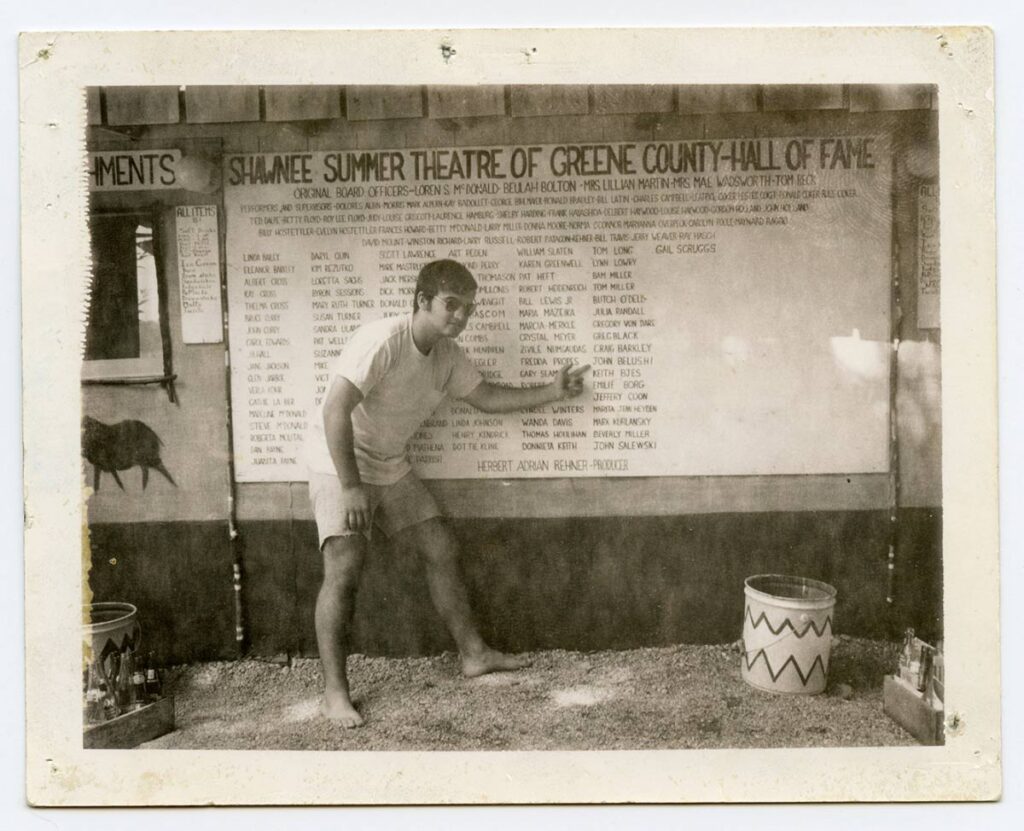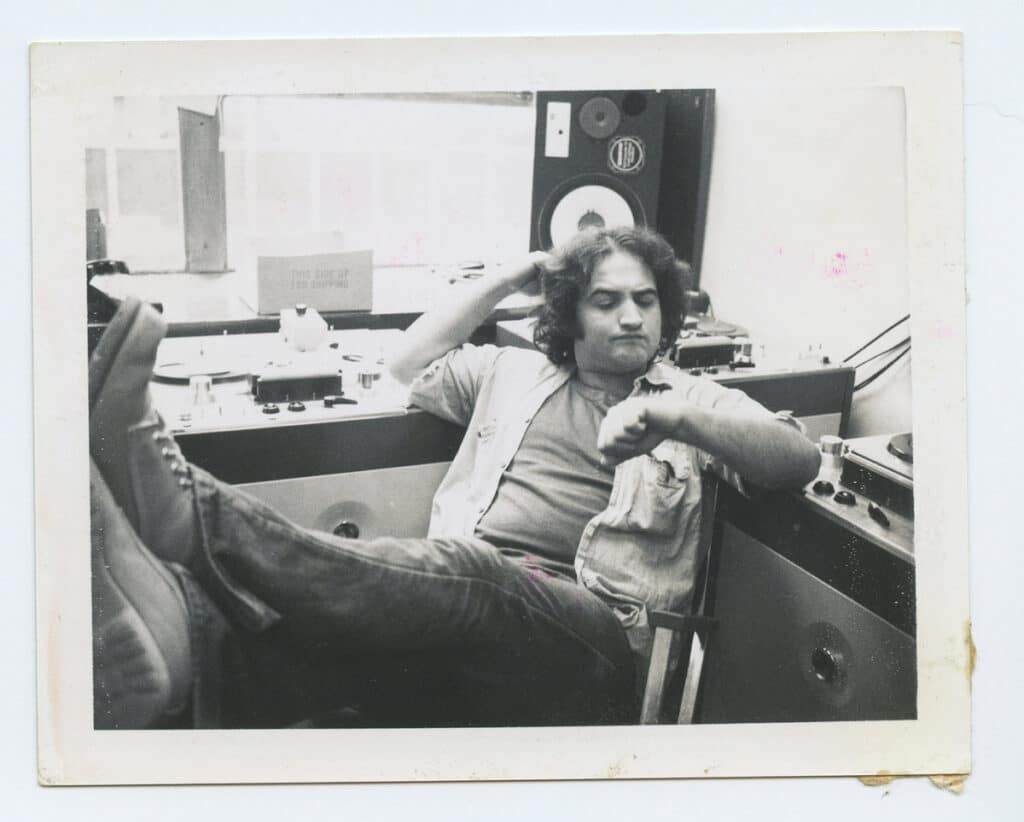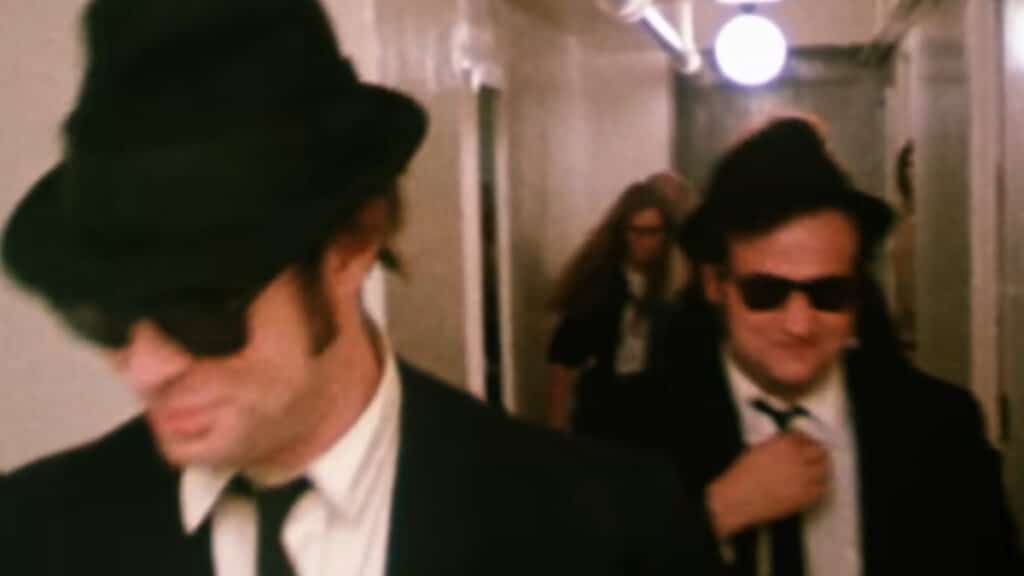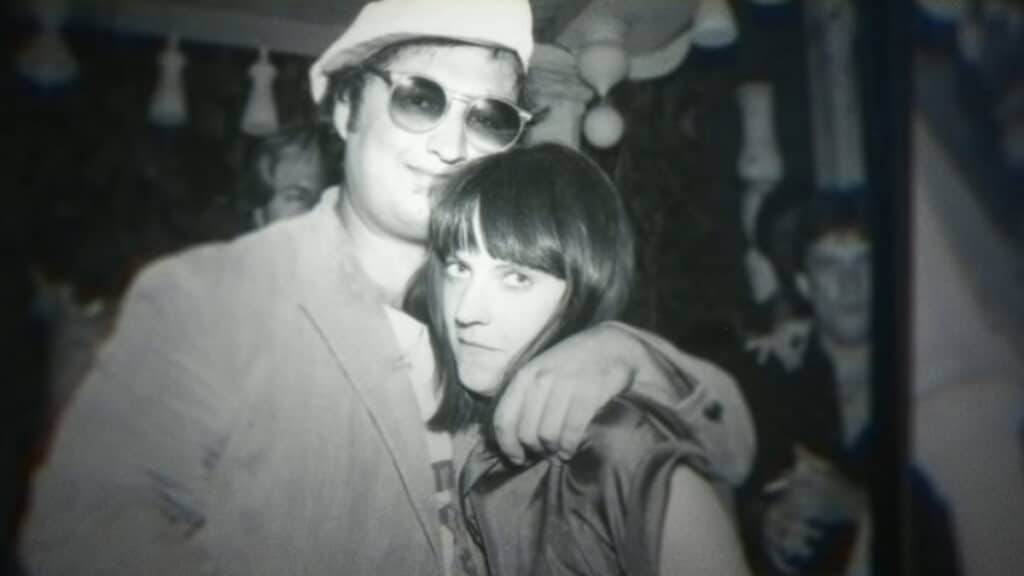AFI Fest Review: Belushi
Belushi (2020) is a Showtime Original documentary film, written and directed by R.J. Cutler. John Belushi was an actor/comedian/musician who burst on to the American comedy scene in 1975 as one of the members of the original not-ready-for-primetime-players, the very first cast of NBC’s Saturday Night Live. His stint on SNL came as a result of his tenure as a member of both the Second City improv group, and National Lampoon, back when National Lampoon was still a thing.

Following his success on SNL, Belushi went on to find success in Hollywood, appearing in National Lampoon’s Animal House (Harold Ramis, 1978), and then The Blues Brothers (John Landis, 1980), both of which were smash hits. Although he was a national institution at this point, and tremendously successful, his life was fraught with substance abuse problems. He battled addiction for almost his entire adult life. A battle that came with an enormous price tag, which he paid for in his life off-screen.
Belushi is an intimate look into the private life of one of the most beloved, and most significant artistic talents of the 20th century. Starting with Belushi’s childhood in Chicago, the film traces Belushi’s career from his formative years with his family, up through his untimely death in 1982. The film examines Belushi’s successes and failures, both personal and professional. The film delves into Belushi’s meteoric rise to stardom, and all of the benefits and drawbacks of that kind of fame. The various anecdotes about his life are told through a combination of audio recordings, and video footage.
In a move that is both uncharacteristic of most documentary films, and one that seems almost de rigueur for any form of entertainment produced in 2020, there are no talking-head style interviews in this film. Rather, all of the stories are told through archival audio clips. The voices of Belushi’s friends, loved ones, and co-conspirators, including the voice of Belushi himself, are set to archival film/video footage, and some animated sequences created especially for the film. Belushi arrives on Showtime on November 22, 2020.

The tagline on the poster for the film claims “everyone loved him, few knew him.” The film goes on to back this up by providing a thorough and detailed account of Belushi’s artistic trajectory. It’s interesting because I’m not sure how relevant John Belushi is to the current times. The passage of time tends to diminish things that were huge pop-cultural phenomena in their time, shedding the pop-culture of the past like layers of an onion as each year, each generation passes. Eventually, posterity itself whittles whatever culture the past has to offer us, down to the brass tacks, leaving us with only a trace of what once existed. The Gary Harts and the Tipper Gores become pop-cultural footnotes, only remembered by those of us who fancy themselves big wheels at bar trivia games. We might remember that Jimi Hendrix played Woodstock, but how many of us remember that Sha-Na-Na opened for him on that Monday morning in 1969.
How many of us remember Sha-Na-Na, PERIOD, for fuck’s sake?
John Belushi’s relevance to the comedy scene today can seem increasingly questionable to a generation who seems ever-more eager to dispense with whatever the past has to offer in favor of reveling in the current zeitgeist. When I sat down to watch Belushi, I even reflected to myself how little I really knew about the man. And I’m talking about his work, not even him personally. I’d seen Animal House and The Blues Brothers, and while I liked them both, and had extensive thoughts on them, I failed to appreciate just how big of an impact these two films had on the America populace. Belushi does a fantastic job of not only taking us back in time and putting us in that place, but also going a step farther, connecting the man and his partners-in-crime with the comedic status-quo of today. So if you are a fan of John Belushi’s work, there is a great deal of information to be consumed here.

The film doesn’t just take us through the ABC’s of Belushi’s career however. Through the recorded voices of countless people that knew him and worked with him, many of them no longer with us themselves, a portrait is painted of an artist. An artist with just as many personal demons driving him to succeed, and beyond, as any other great artist one might name. It seems that great art rarely comes without a price tag. This film shows us the man inside the larger-than-life personality we were acquainted with through his work. The tortured soul living inside that kept the fire burning for him to produce art that was not only tremendously successful in its time, but that changed the landscape of the way things are done today.
There is also a great deal of information and backstory on all of the things John Belushi was a part of and touched in a significant way. If you love The Blues Brothers, there is some wonderful insight provided by John Landis and Dan Ackroyd among others. If you are an SNL fan, Belushi contains a decent amount of behind-the-scenes dirt on those first five seasons. The voices of Lorne Michaels, Chevy Chase, Jane Curtin and others tell us about all sorts of things that went on backstage that the public was never really aware of. Belushi is as informative as it is moving.
There are a few things that the film doesn’t touch on that I would have loved to find out more about. For example, late in his life, John Belushi developed an affinity for Punk Rock. There is even a clip of him jamming with The Dead Boys. Those guys are fuckin’ legends! One of the most notorious moments in SNL history was when Lorne Michaels booked John to host the show, but John wouldn’t do it unless FEAR was booked as the musical guest. Lorne capitulated, and the resulting performances by FEAR are the stuff of absolute legend. I was dying to hear the full story. Alas, I died without hearing it. While the movie does go into John’s connection to Punk, it is slightly cursory on this subject, leaving me thirsty for more.

This is little more than a minor gripe however. It didn’t detract from my enjoyment of the film in the slightest. No documentary can contain every single story. Besides, the story has to flow and move along just like any movie. It can’t get bogged down and side tracked by every single piece of John Belushi minutiae. I mean, not unless this was Ken Burns: Belushi. Which it was not, so I can’t really blame Cutler for leaving some of that stuff on the cutting room floor.
Although, if you are reading this, Ken Burns, Saturday Night Live would be an amazing topic for one of those multi-part docu-series that you are the Goddamn king of. Reach out to me, Ken. I’d love to discuss this project with you and see if we can put our heads together and figure out to make this thing happen!
We live in an interesting time for documentary. They have never been more plentiful, accessible, or popular. In recent years, films like The Imposter (Bart Layton, 2012), Abducted in Plain Sight (Skye Borgman, 2017), Tiger King (Eric Goode, Rebecca Chaiklin, 2020), Bob Lazar: Area 51 & Flying Saucers (Jeremy Kenyon Lockyer Corbell, 2018), and the superlative OJ Simpson: Made in America (Ezra Edelman, 2016), have made documentaries more popular than ever. This is a phenomenon that pleases me greatly.

As a caveat, I have to add that I believe documentaries to be the most deceptive of all films, for they offer up a meticulously curated story, yet present it as “truth.” I always take documentaries with a grain of salt, because somewhere out there, no matter the story, there is someone with a different account of whatever events are under the cinematic microscope that doesn’t get featured in the film.
However, as someone who frequently experiences existential sadness at how so many people in this world militantly embrace anti-intellectualism, it does my heart good to find out people are watching docs. It gives me hope that not everybody agrees with “Miracles” by Insane Clown Posse, and that there are still people out there with a thirst for knowledge, and real understanding. Good for you, America!
Belushi was fantastic. A touching, informative, in-depth look at true genius, its effect on those around it, its impact on the culture that consumes it, and the toll that all of that can take on the person that possesses it. While the lack of talking-head interviews breaks a bit from the conventional form, in the end it pays dividends. Not only do we get to hear first and second person accounts from a veritable who’s who of all of the players involved, but it also allows viewers to focus on the images that the sound bytes are paired with. Keeping their attention on John Belushi himself, rather than being distracted by the appearances of a bunch of other famous people. I laughed, I cried, I reflected. I loved it.

They say that a person isn’t dead until they die three times. The first time is when your body dies. Your physical, corporeal form. The second death is when you are buried, or cremated. Your funeral. The third and final death is when your name is spoken for the last time. Millions and billions of humans over the course of this planets existence, have died their final death. Just go to any graveyard and see for yourself. The older the graves are, the more likely the person contained within has died for the third and last time. True immortality can only really be achieved by leaving a mark on the world, good or bad.
George Washington won’t die his third and final time until way, way, way down the road. Same thing goes for assholes like Hitler and Pol Pot. A mark is a mark, whether for good or evil. Someone like me on the other hand will likely be ushered out of the public consciousness with impressive speed. Tons of entertainers who were huge in their time have long since been forgotten. Belushi ensures that though he is no longer with us in a physical sense, John Belushi will not die that third and final death for quite some time. His gifts, his talents, his enthusiasm to entertain, and to make people laugh, and to make people love him remain with us. John Belushi is going to live and make people love him for a long time to come.
P.S. Because I can feel your curiosity building already, I have done you the favor of posting a clip of Sha Na Na playing at Woodstock, opening for The Jimi Hendrix Experience. If you dig it, or Jimi, and/or haven’t seen Woodstock (Michael Wadleigh, 1970), for the love of God, check it out. It is one of the greatest documentaries of all times, one of the greatest concert films of all time, and a priceless document of one of the most transformative events of the 20th century.
Review
Rating
RN Review of Belushi
Belushi was fantastic. A touching, informative, in-depth look at true genius, its effect on those around it, its impact on the culture that consumes it, and the toll that all of that can take on the person that possesses it.




